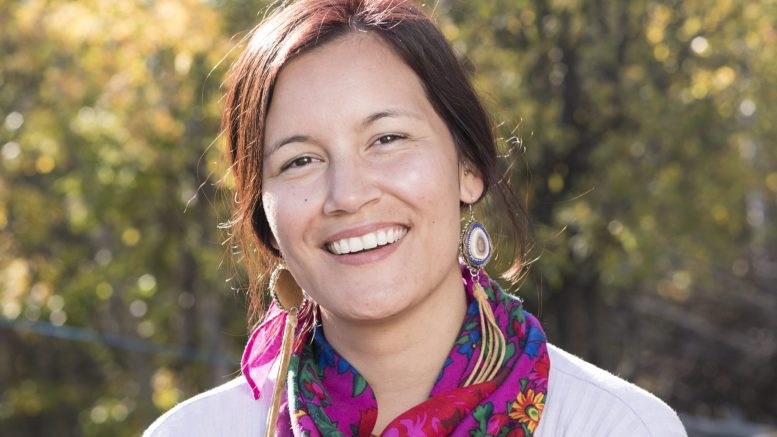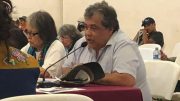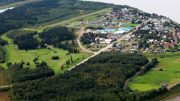“There’s an awakening happening all across Canada.”
Dahti Tsetso is no stranger to Indigenous issues.
This year, she joins the Indigenous Leadership Initiative (ILI) as its new deputy director.
As part of the ILI, Tsetso will now be responsible for leading a network of Indigenous initiatives from all over Canada and even the United States.
A week into her new role and Tsetso is buzzing with energy.
“I’m keen and I’m eager,” she says.
Tsetso is Tłı̨chǫ Dene from Fort Simpson, where she worked for the Dehcho First Nations (DFN) for over 10 years.
“From my experience, it’s building trust and relationships with people around you that really helped make steps towards meaningful change,” she says. “It’s so important to build that and then to be able to share your perspective.”
Through collaboration, Tsetso says her experience with DFN really helped prepare her for this role.
Kristen Tanche has worked with Tsetso at DFN for roughly 3 years.
“She’s very inspiring, hardworking and community-focused,” says Tanche.
“It’s really important that when we have strong Indigenous women, that they’re celebrated.”
She says the staff at DFN miss her but is also excited to see what she does next.
Tsetso is known for launching the Dehcho K’éhodi Stewardship and Guardians Program and the establishment of the Edéhzhíe Dehcho Protected Area and National Wildlife Area — programs crucial to exercising conservation from a Dene perspective.
Now she will help lead Indigenous stewardship do similar projects through ILI.
Tsetso graduated from the University of Alberta with a Bachelor of Science in Environmental Conservation Sciences and of Arts in Native Studies. She also holds a Diploma in Indigenous Language Revitalization from the University of Victoria.
“I’m very fortunate that I’ve been able to connect with elders and with leaders who have helped mentor me in the way that I approach my work,” she says. “Being a Dene woman is at the very core of how I walk in this world . . . grounding myself in that identity, just helps me walk a little taller, a little stronger.”
She is also thrilled to work from her home community – while staying connected to the land, she says. “To me, that’s very important.”
Mariah Caruso is a digital journalist, originally from Toronto, Canada. She graduated from the University of Toronto with a Hons. Bachelor of Arts and completed her Journalism post-grad at Sheridan College. She has an insatiable appetite for life, storytelling, connecting to the people, and getting to the heart of the issue.
On her spare time, you can find her at your local coffee shop writing songs, poetry and prose or at the gym out-lifting men.
If you have a story idea, feel free to send her an email at mariah.caruso@cklbradio.com or call 867-766-2552 Ext 108









